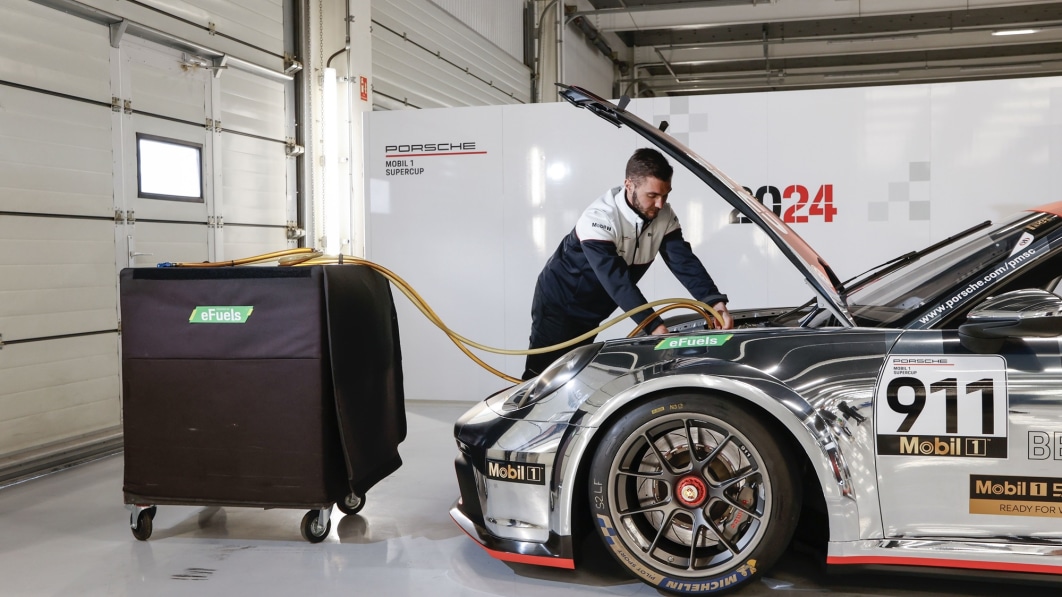
Porsche is serious about proving that its synthetic fuel is a viable alternative to gasoline in an increasingly electrified world. The company announced all of the cars that will compete in the 2024 Supercup series will burn the e-fuel it manufactures in a plant in southern Chile.
Held annually since 1993, Supercup is a one-make race series that follows the Formula One season. In 2024, up to 32 cars will compete in eight races across Europe. The cars are all identical: Participants drive a 911 GT3 Cup powered by a 3.6-liter flat-six that’s linked to a six-speed sequential transmission. It’s this engine, which was developed specifically for racing, that will burn e-fuel during the upcoming season.
Porsche makes several types of e-fuels in the Haru Oni plant it operates in the southern part of Chile; the location was chosen because it’s one of the windiest regions on the planet. The company notes that there’s no need to make any mechanical modifications before feeding the Supercup-bound cars its ready-for-racing e-fuel blend, though it points out that the engine control unit’s software needs to be updated.
There shouldn’t be a noticeable difference in performance, because the e-fuel was developed to offer the same properties as gasoline. The main difference is that it’s not a fossil fuel. I haven’t driven a Supercup-spec 911, but I spent a few days driving around Germany in classic 911s in 2023 and didn’t notice the cars were burning a blend of regular gasoline and e-fuels until someone told me. Even the older models with a carburetor accelerated and sounded the same, though if you smell the exhaust you can tell it’s a little different than you’re used to.
The 2024 Supercup season starts in Imola, Italy, on May 19 and ends in Monza, Italy, on September 1. Porsche expects to burn over 13,000 gallons of e-fuel during the season. In previous years, the company’s Supercup race cars have burned a blend of regular and synthetic fuels.
What’s the big deal with efuels?
Porsche played a significant role in saving the internal-combustion engine by pouring money into the e-fuel project. On the other side of the pond, regulators plan to make the sale of new piston-powered cars illegal in 2035. With hydrogen looking like a pipe dream, at least for cars, European motorists would have been left with one government-approved option: an electric car. That is, until e-fuels entered the equation.
Making the synthetic fuel that will power Porsche’s race cars requires two basic ingredients: water and carbon dioxide. The water is used to generate hydrogen via electrolysis, and this element reacts with the carbon dioxide to produce a substance called eMethanol. It’s then converted into raw gasoline, blended, and refined until it can be used in a car. Wind powers the plant in Chile, so there’s no need to burn a fossil fuel to make an alternative to another fossil fuel, and European regulators agreed to allow the sale of e-fuel-powered cars after 2035.





